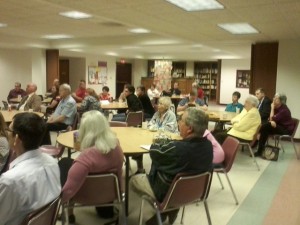 Anthelme Brillat-Savarin , an 18th century French politician once said, “Tell me what kind of food you eat, and I will tell you what you what kind of man are.”[1] The 19th century philosopher Ludwig Feuerbach said, “Man is what he eats.”[2]
Anthelme Brillat-Savarin , an 18th century French politician once said, “Tell me what kind of food you eat, and I will tell you what you what kind of man are.”[1] The 19th century philosopher Ludwig Feuerbach said, “Man is what he eats.”[2]
These observations have been distilled into our modern idiom. “You are what you eat” is a saying one hears or reads pretty regularly. And it’s true. Eating shapes our identities, defines who we are. A particular food and drink may highlight ethnicity, nationality, or age: tacos, lasagna, Coca Cola (over fifty), Pepsi (under thirty,) hamburgers, sushi. Food and drink defines the great holidays and important celebrations of our lives: champagne on New Year’s Eve, turkey at Thanksgiving, plum pudding at Christmas, hot dogs on the Fourth of July, eggs at Easter.
An ordained colleague of mine once commented that the Sacramental presence of the Eucharist has shifted location in the modern church. Once the table-fellowship of the church was centered on the altar; now, he said, it is found elsewhere depending upon denominational tradition. For Baptists, it is now found in the fried chicken dinner; for Methodists, in the potluck supper; and for Episcopalians, at coffee hour. He was kidding, of course, but there is an element of truth in his humor.
 In today’s Gospel lesson we heard, as we always hear on the Second Sunday of Easter Season, the story of “doubting Thomas.” What is striking about the Thomas’s demand … “unless I see” … is that our Lord accepts and encourages it … “Reach out your hand.”
In today’s Gospel lesson we heard, as we always hear on the Second Sunday of Easter Season, the story of “doubting Thomas.” What is striking about the Thomas’s demand … “unless I see” … is that our Lord accepts and encourages it … “Reach out your hand.” Easter is a joke. Amen.
Easter is a joke. Amen. Today, as I write this, is Trinity Sunday 2020, but my imagination this morning is not caught up by the Lectionary gospel lesson of the day, the last mountain-top experience of the Eleven when, just before his Ascension, Jesus gives them the Great Commission.
Today, as I write this, is Trinity Sunday 2020, but my imagination this morning is not caught up by the Lectionary gospel lesson of the day, the last mountain-top experience of the Eleven when, just before his Ascension, Jesus gives them the Great Commission. With churches suspending public worship out of concern for the contagion of Covid-19, the noval coronavirus, we Episcopalians (and many others) are prevented from receiving Holy Communion. An ancient practice of the Church in such circumstances, for there have always been those who, for whatever reason, are unable to take the Sacrament, is to make an act of “spiritual communion.”
With churches suspending public worship out of concern for the contagion of Covid-19, the noval coronavirus, we Episcopalians (and many others) are prevented from receiving Holy Communion. An ancient practice of the Church in such circumstances, for there have always been those who, for whatever reason, are unable to take the Sacrament, is to make an act of “spiritual communion.”  Today marks the beginning of the season we call “Lent,” an old English word which refers to the springtime lengthening of the days. What is this season all about, these forty days (not counting Sundays) during which we are to be, in some way, doing what a hymn attributed to St. Gregory the Great says: “Keep[ing] vigil with our heavenly lord in his temptation and his fast?”
Today marks the beginning of the season we call “Lent,” an old English word which refers to the springtime lengthening of the days. What is this season all about, these forty days (not counting Sundays) during which we are to be, in some way, doing what a hymn attributed to St. Gregory the Great says: “Keep[ing] vigil with our heavenly lord in his temptation and his fast?” In the beginning, God said . . . and there is creation.
In the beginning, God said . . . and there is creation. While making a presentation at a conference about teaching English as a second language, an expert in the field remarked that one of the difficulties is that there are many instances in English when a double-negative renders positive meaning and this is confusing for non-English speakers. “It’s fortunate,” she said, “there’s no way in English that a double positive can convey negative meaning.”
While making a presentation at a conference about teaching English as a second language, an expert in the field remarked that one of the difficulties is that there are many instances in English when a double-negative renders positive meaning and this is confusing for non-English speakers. “It’s fortunate,” she said, “there’s no way in English that a double positive can convey negative meaning.”  Two things happened last Saturday.
Two things happened last Saturday.


